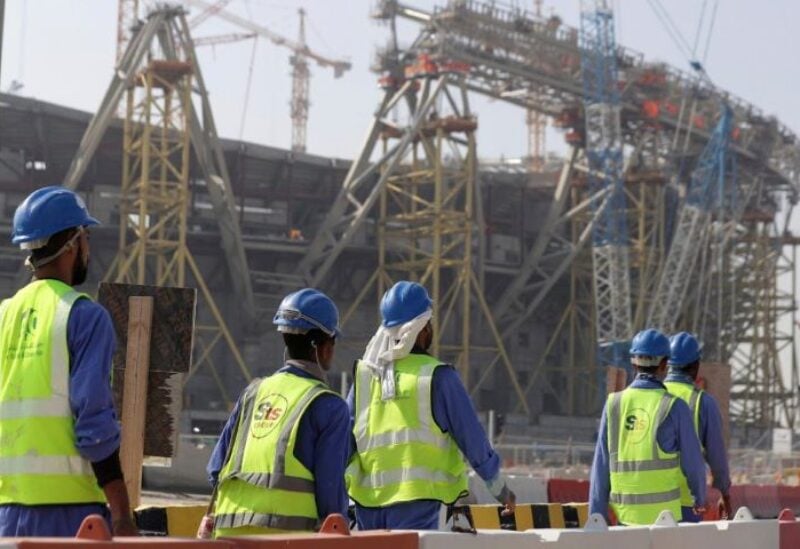
Workers at the stadium of the upcoming 2022 Fifa soccer World Cup
The International Labour Organization (ILO) said on Friday that Qatar is not adequately investigating and reporting worker deaths, including unexplained deaths among seemingly healthy laborers.
In the run-up to hosting the 2022 FIFA World Cup in November, the small but wealthy Gulf state, where foreigners make up the majority of the population, has faced scrutiny over worker conditions.
According to data collected at government-run trauma centers and ambulances in 2020, 50 workers died and more than 500 were severely injured, according to the ILO.
“The majority of the victims were migrant workers from Bangladesh, India, and Nepal, primarily in the construction industry. The leading causes of severe injuries were falls from great heights and traffic accidents, followed by falling objects on construction sites “According to the report.
According to the ILO, the figures could be higher because authorities do not classify all work-related deaths as such, including unexplained deaths among healthy workers and heat-related fatalities.
That data gap should be filled with better injury investigations, according to Max Tuón, head of the ILO’s Qatar office.
In a statement, Qatar’s labor ministry stated that “no other country has come so far on labor reform in such a short period of time, but we acknowledge that there is still work to be done.” It stated that it was going over the ILO recommendations.
Amnesty International chastised Qatar in August for failing to investigate thousands of unexplained deaths.
In February, the widely circulated Guardian newspaper reported that 6,500 South Asian migrants had died in Qatar since 2010. Tuón, on the other hand, cautioned that worker deaths in Qatar are frequently reported without the necessary nuance.
“The [Guardian’s] figure includes all deaths in the migrant population… without distinguishing between migrant workers and the general migrant population, let alone fatalities caused by occupational injuries,” the ILO stated.
In recent years, Qatar has implemented a number of labor reforms, including stricter rules to protect workers from heat and an increase in the minimum wage.